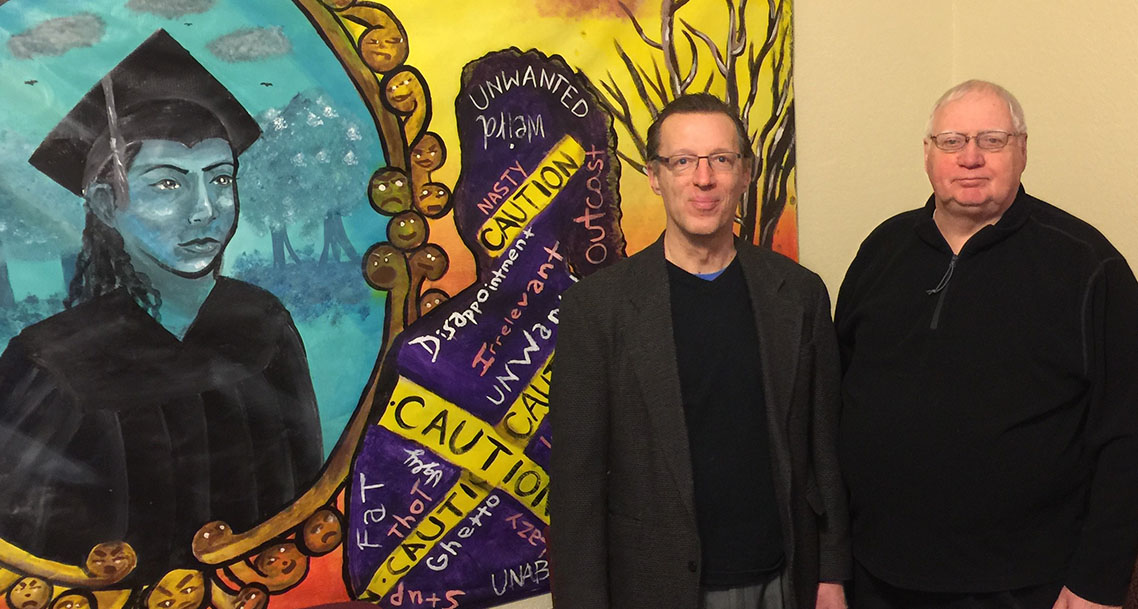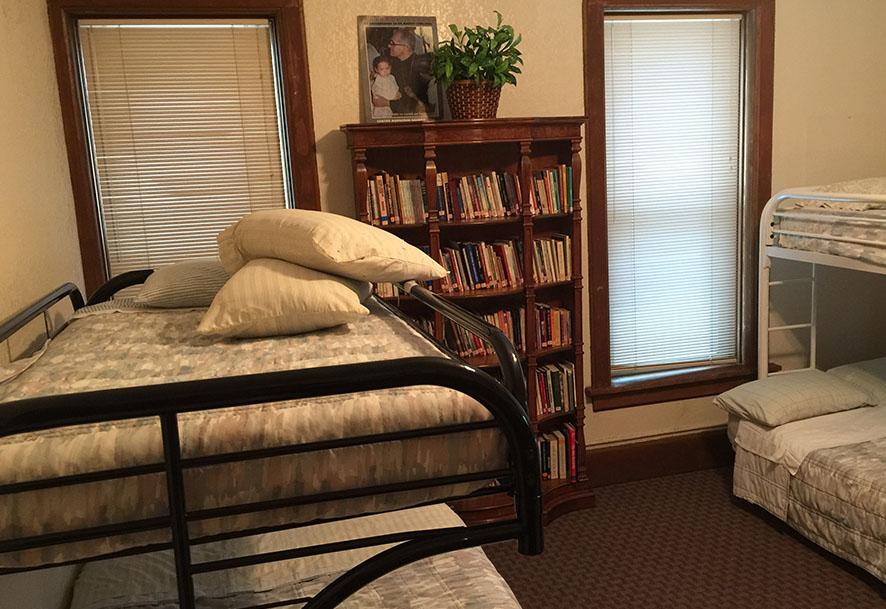
Michael Coffey (left) is the new executive director of Casa Romero.
The biography of martyred El Salvadoran Bishop Oscar Romero was titled, “Voice of the Voiceless.”
Considering the area of Milwaukee that it serves, it’s fitting that Casa Romero Renewal Center chose him as its namesake.
Unlike many of the retreat centers in the archdiocese, Casa Romero is neither large nor set in a rural/suburban area. Nestled in the heart of Milwaukee’s Latino community at 423 W. Bruce St., Casa Romero is usually bulging at the seams if it has even 20 overnight guests.
However, that doesn’t stop the mission of the organization, which was founded by Fr. David Shields in 2001.
After coming to Milwaukee in 1996 following his work on Native American reservations in South Dakota, Fr. Shields started working at St. Patrick’s but was thinking of forming a place that could serve as a center for spiritual development for the Latino community.
“There was just no place that was accessible and affordable to the Latino people to gather for prayer, for retreats, for conferences,” said Fr. Shields.

The facility has enough beds for 14 guests.
The facility was built in 1888 as a convent for German-speaking School Sisters of Notre Dame.
“I came and took a look at it and I was enchanted by the possibilities of the building. It was pretty much a wreck. It took a lot of effort and a couple of years to rehab,” Fr. Shields said. “It was to be a place where the Latino community could gather for spirituality kinds of things.”
Following the completion of the rehab process, it took a while for brand recognition to develop for the fledgling organization. In addition, there was a lot of skepticism, and question about location and purpose of the organization.
As marketing efforts increased and Fr. Shields started reaching out to schools and parishes, slowly but surely it changed to the point that among the myriad events the site hosts are middle school retreats per year.
The change in perception had occurred during the current decade, Fr. Shields said.
“Our gala, our annual fundraiser, has brought a lot of people in contact,” Fr. Shields said.
The event, held in the fall, presents a taste of Latin America, as well as dancing, music, silent auctions and raffles.
Most of the events are smaller, cozier occasions with 10-15 guests, usually for day retreats.
However, the building can sleep 14 people in beds. Fr. Shields said it has held as many as 30 people during college groups with people sleeping on the floor.
“When you get to about 25 people, you’ve maxed it,” Fr. Shields said.
One of the big events the center hosts each year is the Urban Plunge, a chance for people who Fr. Shields says live in “vanilla environments” to get into an urban setting and work with connected non-profits on issues such as immigration, the environment, poverty and homelessness.
In the past month, Casa Romero has welcomed a new executive director, Michael Coffey, who has a background in ministry to diverse communities, including as an administrator at a Catholic high school, teaching in Milwaukee Public Schools and, most recently, coordinating theological instruction for Catholic school teachers.
Fr. Shields said Coffey’s main role will be overseeing all aspects of Casa Romero and setting a vision for the future. Casa Romero’s events are orchestrated by a group of 10 young staff people.
“We have a staff of really inspired people,” Coffey said. “They are what give this place life. They’re really quite amazing people.”
Also amazing was Bishop Romero, who was known as a shy, bookish person before he was consecrated. Fr. Shields said he was installed in the position because the powers that be thought they could manipulate him. The mistake they made, however, was killing a friend of his a few weeks after he was consecrated.
That flipped a switch for Romero. He ended providing a powerful voice for the rights of his people and against oppression and the government.
Romero was shot to death following his homily during Mass on March 24, 1980, a day that has become a chance for remembrance and reflection of this Man of God.
“I reflect his journey from being a shy, quiet person, uninvolved, to being somebody who’s much more involved in issues dealing with justice,” Fr. Shields said.
Such as giving those without a voice a platform to find it.
